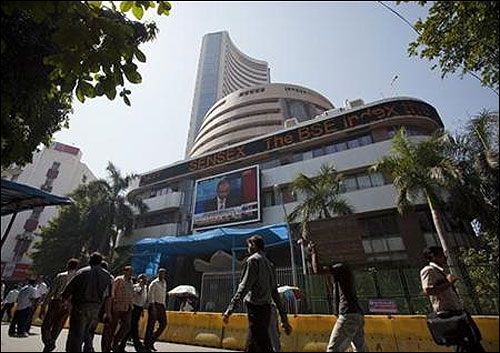Hitendra Dave, managing director and head of markets, HSBC India, in conversation with Vishal Chhabria and Sheetal Agarwal, shares his views on the current market turmoil.
 Edited excerpts:
Edited excerpts:
What is your near-term outlook?
There is an overall reassessment of asset prices globally, irrespective of whether an emerging market is healthy or benefiting from global developments.
India is caught up in that and we are experiencing outflows that are not very large at $100-200 million a day.
The sharp fall in crude oil prices is a bounty. It allows the government to find resources without having to raise taxes or borrow more.
Just three months ago there was a widespread sense that the Reserve Bank of India (RBI)'s space for further monetary accommodation was limited.
The space for easing has opened up. Although the situation has improved, market sentiment has worsened.
The considerable and consistent inflow of domestic money played a significant role in the second half of 2015 by absorbing almost matching FII (foreign institutional investor) outflows.
If this trend persists, you are replacing institutional and leveraged money with household savings.
So long as there are concerns about world trade, growth and oil prices, the domestic market will remain volatile. One should be prepared for a slightly bumpy ride.
The rupee has depreciated less than other emerging market (EM) currencies. Is that a problem?
Since January 2015, the rupee has weakened less than seven per cent against the dollar.
But, almost everyone else's currency, be it Argentina, Brazil, South Africa, Russia, Turkey, Mexico, Chile, South Korea or Thailand has fallen between nine per cent and 37 per cent.
The rupee's challenge is its outperformance against other EM currencies. This reduces our competitive advantage. This period of rupee weakness is a welcome development.
How expensive are Indian markets at 18-19 times earnings?
Any big money manager takes into account a significant part of the growth potential of a country and its companies over one to 10 years, depending on his investment horizon.
India's valuation can potentially be justified because it is one of the few markets benefiting from global developments.
India saved $50 billion more in 2015 simply because oil prices came down.
This money was split among consumers, oil companies and the government.
Inflation and the current account and fiscal deficits are trending in the right way.
There is a strong political leadership and a strong central bank leadership.
These filters are difficult to find in other emerging markets. India is setting itself up for a medium-term period of growth that will be 2-2.5 times that of world growth.
That is why the premium seems justified.
Your outlook on earnings growth and which sectors will drive this?
Companies benefiting either from currency weakness or lowering of interest rates or those that buy commodities in bulk for sale to consumers as branded products will continue to grow.
We expect earnings growth to climb to 19.1 per cent in 2016.
When do you expect the transmission of rates to gather pace?
If we are so deeply into a rate cut cycle, should we not have liquidity conditions that reflect a clearly accommodative monetary policy stance, so that banks have that liquidity and then look for borrowers by lowering rates?
I really do hope there is a re-look at the current liquidity framework.











